Dental Implant in Abu Dhabi
Search and Compare the Best Clinics and Doctors at the Lowest Prices for Dental Implant in Abu Dhabi
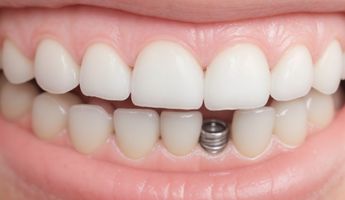
Find the best clinics for Dental Implant in Abu Dhabi
With Medijump you can browse 7 facilities offering Dental Implant procedures in Abu Dhabi. The cheapest price available is $544 in Abu Dhabi
Dental Implant in United Arab Emirates
Price: $ 544
Dental Implant in Abu Dhabi
Price: $ 544
Dental Implant in Sharjah
Price: $ 953
Vietnam offers the best prices Worldwide
Price: $ 1
From 135 verified reviews
Kudzani Sithole, 20 September 2020
Made an appointment and was seen on time with the friendliest doctor with the best bedside manners. Thank you Dr Ahmed Namshi for putting us at ease from the moment we came in until we left. The receptionist was also fast and efficient. Very clean environment too!!
From 12 verified reviews
Milica Lukic, 08 July 2020
I had amazing experience today with dentist dr. Bojana.The service,ambience, her energy... just wonderful. Warm recommendation to everyone
From 37 verified reviews
Mcjaydele Mclaine, 18 September 2020
I had a very positive experience with all of the Nurses and staff at Ahalia Hospital-Mussafah. I highly recommend Dr. Saumya my gynecologists she is very professional and amazing!
From 65 verified reviews
Mutasim Goraish, 06 September 2020
It's a good place and number one for the medical clinic in JCC it's like ahotea Clinic 😀
Purecare Medical Center, located in Al Zahiyah, Abu Dhabi, United Arab Emirates offers patients Dental Implant procedures among its total of 12 available procedures, across 1 different specialties. The cost of a Dental Implant procedure ranges from د.إ1,999 to د.إ6,999, whilst the national average price is approximately د.إ5,352. There are many specialists available at the Dental, with 4 in total, and they are not accredited by any recognized accreditations institutes
Elitecare Medical Center, located in Al Dhafrah, Abu Dhabi, United Arab Emirates offers patients Dental Implant procedures among its total of 5 available procedures, across 2 different specialties. The cost of a Dental Implant procedure ranges from د.إ3,000 to د.إ5,000, whilst the national average price is approximately د.إ5,352. There are many specialists available at the Clinic, with 10 in total, and they are accredited by DHA - Dubai Health Authority
Al Salama Hospital, located in Al Zahiyah, Abu Dhabi, United Arab Emirates offers patients Dental Implant procedures among its total of 98 available procedures, across 16 different specialties. Currently, there's no pricing information for Dental Implant procedures at Al Salama Hospital, as all prices are available on request only, whilst the national average price is approximately ฿52,442. There are many specialists available at the Hospital, with 10 in total, and they are not accredited by any recognized accreditations institutes
- Home
- United Arab Emirates
- Abu Dhabi
Compare Before & After Photos of _procedure_photos.phpDental Implant

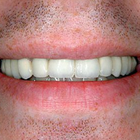
Front view


Front view
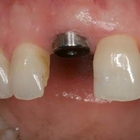
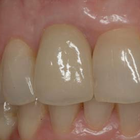
Front view
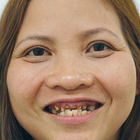

Front view

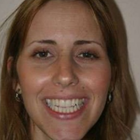
Front view
WHY US?
At Medijump, we're making medical easy. You can search, compare, discuss, and book your medical all in one place. We open the door to the best medical providers worldwide, saving you time and energy along the way, and it's all for FREE, no hidden fees, and no price markups guaranteed. So what are you waiting for?

Free

Best Price

Widest Selection

Risk-Free
What you need to know about Dental Implant in Abu Dhabi

A dental implant is a medical device that provide support to artificial teeth. It's surgically placed into the jaw to act as a replacement for the root of a missing or damaged tooth, which in turn serves to hold a replacement tooth or bridge. It functions and looks much like a real tooth, restoring your ability to chew and improves your overall appearance. Dental implant surgery is considered as a better alternative to dentures or bridgework that does not fit well. It also offers a great option for people when they do not have enough natural teeth roots left to build denture or bridgework replacements.
Since dental implants eventually fuse with your jawbone over the span of several months, it won’t make noise, slip, or cause bone damage the way dentures or bridgework might. Dental implants also enable natural speech, look and feel like your own teeth, make eating easier, and improves your appearance. However, the surgery may involve several stages, and, in some cases, it may require two separate visits to the clinic to complete. Ensure to look for a specialist in a reputable clinic for the best results.
What is the cost of Dental Implant in Abu Dhabi?
Price differences abound in Abu Dhabi for Dental Implant based on the clinic, the proficiency of the surgeon, and the individual requirements of the patients. It's essential to realize that dental insurance usually doesn't cover the entire bill for this treatment, though it might cover a part. Several dental clinics provide finance schemes or payment alternatives to assist in easing the financial burden. For more precise cost estimates, reach out to your dental service provider or a nearby clinic.
What does a Dental Implant Procedure Involve?
Dental implant surgery generally requires several stages. Each stage may be performed under general or local anesthetic. The first stage is removing the damaged tooth. Then, if your jawbone is too soft or not thick enough, your dentist may perform bone grafting to create a more solid base for the implant. The bone graft may be natural (taken from another part of your body) or synthetic (a bone-substitute material). If you only need minor bone grafting, the implant surgery can be performed on the same day. However, if you need a significant amount of bone graft, the implant surgery may have to be postponed until the transplanted bone grows enough new bone to support the dental implant.
The next stage after the damaged tooth removal and bone graft (if you need one) is placing the dental implant. To do this, your dentist makes an incision to expose the bone and puts the metal implant post deep into the bone. At this stage, you will still have a gap where your tooth is missing. Your dentist will place a temporary denture for appearance. Once the metal implant post is placed, osseointegration begins. This is a process where the jawbone grows into the surface of the implant and can take several months to complete. After osseointegration is complete, your dentist will place the abutment, which is a small connector post that will hold your new tooth. The final stage, after the abutment is placed, is placing the crown, which is the tooth-looking part. You can choose between a removable crown and a fixed crown.
How Long Should I Stay in Abu Dhabi for a Dental Implant Procedure?
The length of your stay in Abu Dhabi for a Dental Implant depends on numerous considerations like the intricacies of the procedure, the quantity of implants required, and your personal recovery process. Each stage of dental implant surgery is done in separate appointments. After each appointment, you should be able to leave the hospital or clinic right away. However, you should stay in Abu Dhabi for at least 2 weeks for completion of the work, the initial recovery time, and follow-up checkups.
What's the Recovery Time for Dental Implant Procedures?
The recuperation duration following a Dental Implant or dental implant operation can widely vary and is shaped by multiple aspects. Initial healing of the tissue might require only a handful of days, but complete osseointegration (the fusion of the implant with the jawbone) generally spans several months. This window could be extended for patients requiring auxiliary procedures such as bone grafts, or those with prevailing health issues that may impede the healing process.
Post-procedure, it's not unusual to experience a degree of discomfort, which could manifest as minor pain, swelling of your gums and face, skin and gum bruising, and slight bleeding. Such symptoms are a standard phase of the recovery process and should alleviate within a fortnight. In this interim, it's advisable to stick to a soft diet to not overload the implant site with undue pressure. Any strenuous physical exertion should be put off to circumvent potential complications.
Maintaining excellent oral hygiene is paramount to facilitate healing and stave off infection. Regular brushing and flossing, being particularly gentle around the surgical area, coupled with rinsing your oral cavity with warm saline water, can contribute to keeping the region hygienic.
What sort of Aftercare is Required for Dental Implant Procedures?
After each stage of surgery, you may have to eat soft foods. Since you may experience swelling, bruising, pain, and minor bleeding, your dentist will prescribe pain medications or antibiotics to help ease your discomfort. During your recovery period, you need to avoid smoking as it can contribute to implant failure and complications.
No special care is required for dental implants. Nonetheless, you need to practice good oral hygiene in order to maintain the implant and your remaining natural teeth. Make sure to brush your teeth twice a day, floss daily, and rinse your mouth with an antiseptic mouthwash. You also need to see your dentist regularly and avoid damaging habits, such as chewing hard items.
What's the Success Rate of Dental Implant Procedures?
The efficacy of Dental Implant, alternatively referred to as dental implants, in Abu Dhabi, is typically impressive, boasting effectiveness percentages as high as 98% in some studies. This positions dental implants as one of the most reliable procedures within dental care's realm. Nevertheless, it's worth mentioning that the success rates might fluctuate, influenced by several factors.
The patient's overall health is a key determinant of the thriving outcome of a dental implant procedure. Individuals exhibiting optimal health usually witness higher success rates. Pre-existing health issues like diabetes, osteoporosis, and periodontal ailments can theoretically impact the efficacy of the implant.
Additional contributing factors to the success rate encompass the quality and abundance of the individual's bone structure. Patients boasting plentiful, healthy bone are ordinarily the perfect candidates for dental implants. However, those who have experienced bone loss might need to undergo a bone grafting procedure before the implant procedure. This step can provide a robust base for the implant and enhance the chances of a successful result.
Are there Alternatives to Dental Implant Procedures?
If you are not a candidate for dental implant surgery, or you simply do not want to undergo the procedure, you can opt for the alternatives. The alternatives include:
- Mini dental implants, which is a small type of dental implants. The structure is similar to regular dental implants, but are somewhat smaller in size. Unlike regular dental implants, dentists can often place mini implants only in one visit using local anesthesia. You may also be able to use your new teeth on the same day.
- A same-day implant is essentially similar to traditional dental implants. However, your dentist performs the whole process in just one day, skipping the process of wound healing and osseointegration.
- Implant-supported dentures or All-on-4 is an alternative if you need to fix a complete upper or lower set of teeth. During this procedure, four to six implants are placed into your jawbone as a base to attach and stabilize your denture.
What Should You Expect Before and After the Dental Implant Procedure?
Grasping what lies ahead before and post the Dental Implant can lessen potential worries and guarantee you are fully equipped for the upcoming journey. Prior to the procedure, your dental practitioner will conduct an all-inclusive dental assessment. This check-up may encompass dental X-rays and sophisticated 3D imaging to examine the status of your oral cavity.
The dental professional will also explore your medical history. If you're suffering from specific heart disorders or orthopedic implants, your dental practitioner might suggest antibiotics to avert infection. A personalized treatment blueprint, customized to your circumstances, will be constructed. This strategy takes into account factors like the amount of teeth you need substituted and the state of your jawbone. The procedure is typically carried out under local anesthesia to mitigate any discomfort.
Subsequent to the operation, experiencing slight unease is usual. You might witness inflammation of your face and gums, discoloration of your skin and gums, soreness at the insertion area, and insignificant bleeding. Your dental specialist will recommend medications to soothe these indicators. In case inflation, unease, or any other complications intensify in the days post-operation, it's crucial to reach out to your oral surgeon. Post-operation will require you to consume mushy foods as the operated site recovers. Moreover, you'll be guided to abstain from smoking, as it can hinder recovery and influence the triumph of the dental implant.
Following the positioning of the implant, the healing process, and fusion with the bone (osseointegration) transpire over an extended period. During this interval, maintaining robust oral cleanliness is vital. This involves frequent brushing, the use of dental floss, and cleansing with an antibacterial mouthwash. Periodic dental examinations are obligatory to track progress and confirm the well-being and effectiveness of the implant.
What are Potential Risks of Dental Implant?
Despite Dental Implant boasting remarkable effectiveness, it is, as any surgical operation, not without risks and potential difficulties. The chances of encountering these issues are often minute and irregularities are infrequent, yet it remains critical for patients to comprehend these possibilities before undertaking the procedure.
Complications and side effects may include:
- Implant failure
- Nerve injury
- Infection
- Sinus problems
- Damage to surrounding structures, such as other teeth or blood vessels
How long does a Dental Implant last?
The durability of a Dental Implant is heavily reliant on the individual's oral cleanliness and general wellbeing. Nonetheless, with appropriate upkeep and care, dental implants have the potential to stand the test of time. The titanium pillar inserted into the jawbone during surgery is crafted to be everlasting, while the dental cap fastened to the anchor may necessitate substitution every decade or decade and a half due to normal usage. Yet, with outstanding dental management and habitual screenings, the cap has the potential for lifelong endurance.
Whilst the information presented here has been accurately sourced and verified by a medical professional for its accuracy, it is still advised to consult with your doctor before pursuing a medical treatment at one of the listed medical providers
No Time?
Tell us what you're looking for and we'll reachout to the top clinics all at once
Enquire Now

Popular Procedures in Abu Dhabi
Prices Start From $1

Prices Start From $1

Prices Start From $48

Prices Start From $1

Prices Start From $1

Prices Start From $11

Prices Start From $1

Prices Start From $45

Recommended Medical Centers in Abu Dhabi for Dental Implant

- Interpreter services
- Translation service
- Religious facilities
- Medical records transfer
- Medical travel insurance
- Health insurance coordination
- TV in the room
- Safe in the room
- Phone in the room
- Private rooms for patients available

- Interpreter services
- Translation service
- Religious facilities
- Medical records transfer
- Medical travel insurance
- Health insurance coordination
- TV in the room
- Safe in the room
- Phone in the room
- Private rooms for patients available

- Interpreter services
- Translation service
- Religious facilities
- Medical records transfer
- Medical travel insurance
- Health insurance coordination
- TV in the room
- Safe in the room
- Phone in the room
- Private rooms for patients available

- Interpreter services
- Translation service
- Religious facilities
- Medical records transfer
- Medical travel insurance
- Health insurance coordination
- TV in the room
- Safe in the room
- Phone in the room
- Private rooms for patients available

- Interpreter services
- Translation service
- Religious facilities
- Medical records transfer
- Medical travel insurance
- Health insurance coordination
- TV in the room
- Safe in the room
- Phone in the room
- Private rooms for patients available

- Interpreter services
- Translation service
- Religious facilities
- Medical records transfer
- Medical travel insurance
- Health insurance coordination
- TV in the room
- Safe in the room
- Phone in the room
- Private rooms for patients available

- Interpreter services
- Translation service
- Religious facilities
- Medical records transfer
- Medical travel insurance
- Health insurance coordination
- TV in the room
- Safe in the room
- Phone in the room
- Private rooms for patients available

- Interpreter services
- Translation service
- Religious facilities
- Medical records transfer
- Medical travel insurance
- Health insurance coordination
- TV in the room
- Safe in the room
- Phone in the room
- Private rooms for patients available
Dental Implant in and around Abu Dhabi
About Abu Dhabi
Abu Dhabi is the capital city of the United Arab Emirates and the richest city in the country due to its oil fields. Abu Dhabi is an advanced but conservative cosmopolitan city. In 2018, the city was ranked as the safest city in the world with the lowest crime index of more than 300 cities.
Culture, adventures, shopping malls, to coastal beauty; Abu Dhabi has a lot to offer that will leave anyone in awe. The city is filled with opulent architecture, making the skyline of Abu Dhabi a captivating view.
Abu Dhabi is now developing to be the region’s leading medical tourism destination. The government is working continuously to establish a world-class healthcare system. The city targets patients from other Gulf Cooperation Council (GCC) Countries, Russia, China, and other parts of the world. Attracting top-quality doctors and a range of specialist services, Abu Dhabi focuses its procedures on cardiology, oncology, and executive screenings. A total of 16 public and private hospitals in Abu Dhabi offer a wide range of medical treatment with quality care. Cleveland Clinic Abu Dhabi, Ahalia Hospital Musafahl, and Burjeel Hospital are among the highest-regarded medical facilities in the city. The city attracts many medical tourists for the following reasons.
- Medical facilities with the highest standards and international accreditations.
- Treatment using cutting-edge technology.
- Medical interpreters who speak a range of languages.
- The best hospitality, at the hospital, and throughout the city.
Popular Areas in Abu Dhabi
With a beautiful mixture of ultramodern architecture and Islamic traditions, Abu Dhabi is packed with amazing attractions and exhilarating adventure.
- Sheikh Zayed Grand Mosque is the United Arab Emirates’ largest place of worship that attracts millions of tourists each year. The mosque is an architectural wonder, mesmerizing even to the little details. Tourists can choose to get a free one-hour guided tour to get the best insight into the religion and culture that surrounds the mosque.
- Louvre Abu Dhabi is an art and civilization museum that has been open since 2017. The museum is showcasing artworks from around the world. Apart from the artwork, the architecture of the museum is also breathtaking with a web-patterned dome that allows sunshine to filter through.
- Al-Ain Oasis is a UNESCO World Heritage Site. The oasis has only been open to the public recently. It is full of palms and mango trees. Al-Ain Oasis is home to a 3000-year-old falaj irrigation system, the oasis provides an insight into the history of Abu Dhabi inhabitants.
- Ferrari World is the perfect place for tourists who want to celebrate all things, Ferrari. People come to this indoor theme park to experience Formula Rossa, the world’s fastest roller coaster.
- Abu Dhabi Corniche is a beautiful clean beach with great views of turquoise waters and Abu Dhabi skyline that will not disappoint. Tourists can enjoy a day under the sun lounging on the beach, walk along Corniche Road, or admire the sunset.
Weather and Climate in Abu Dhabi
Abu Dhabi has a subtropical climate. The city enjoys sunny skies and hot temperatures throughout the year. Summer starts from May to September and the average temperature ranges between 38–42°C. During the hottest days, the temperature can get as high as 48°C. Winter starts from December to February, the average temperature is around 13-29°C. Rain mainly falls in winter.
The best time to visit Abu Dhabi is from November to April when the temperature is cooler and more pleasant.
Despite the heat in the summer, it is advised to always wear modest clothing as the locals do not welcome revealing or tight clothing. Lightweight and comfortable clothing are suitable most of the year.
Getting Around in Abu Dhabi
Abu Dhabi International Airport serves more than 30 airlines that connect the city to more than 60 countries in the world. Etihad Airways dominates the airport terminal spaces. Abu Dhabi International Airport mainly serves major airlines, although budget airlines such as Airblue Limited and IndiGo also operate flights.
Tourists can choose the airport taxis, buses, or hire a car to get to their destinations from the airport. Airport taxis cost around 75AED to 85AED for a trip to the city center. If you want to take the airport bus, purchase a Hafilat card from the vending machine at the airport terminal bus stop.
There are many ways to get around Abu Dhabi. Taxis are relatively cheap and metered; tourists can flag down the taxis or order through a call center. Abu Dhabi also has a city bus that operates on 14 routes between 6.00 am to 11.00 pm, most fares are 2AED. Hiring a car can be a good way of getting to many destinations as it offers more flexibility. If you’re in Corniche or Yas Island, hiring a bike is the best choice to explore these Islands.
The ever-changing street names and numbering system can be confusing, so it is advisable to describe the landmark you are looking for.
Tourist Visas in Abu Dhabi
Citizens of 60 countries can get a free entry visa (30 or 90 days depending on the country) upon arrival. Gulf Cooperation Council (GCC) citizens do not require a visa to enter Abu Dhabi. Citizens of other countries need to apply for a visa before entering Abu Dhabi through the nearest UAE embassy.
Tourists flying with Etihad Airways to Abu Dhabi International Airport can request a visa arrangement. All visitors are required to hold a passport valid for at least 6 months.
Additional Information
- Local Currency: The local currency is the United Arab Emirates dirham or Emirati Dirham (AED). 1 USD gets you around 3.7 AED. The notes are written in Arabic letters.
- Money & Payments: ATMs and currency exchanges are available across the city. Hotels, restaurants, and shops accept credit cards, debit cards, and cash. Tipping is common, but not expected. Tipping a hotel and restaurant staff is at your discretion. Many high-end restaurants may add a service charge of around 10% and a tourism levy of around 6%.
- Local Language: Arabic is the official language, but English is widely spoken especially in the city center. Road and shop signs are written in Arabic and English.
- Local Culture and Religion: The culture in Abu Dhabi is deeply rooted in Arabia’s Islamic Tradition. Islam is the official religion but people can freely practice their religion as long as they don’t interfere with Islam.
- Public Holidays: Ramadhan is hugely celebrated with the biggest festivals and the city is beautifully decorated. It is important to remember that during Ramadan, drinking, eating, and smoking at fasting hours (daylight) is illegal. Nightclubs are closed for the whole month. Other public holidays are the Islamic New Year, the Prophet’s Birthday, the King’s Coronation Day, Diwali, and Chinese New Year.
Popular Searches
- Plastic Surgery in Thailand
- Dental Implants in Thailand
- Hair Transplant in Thailand
- Breast Augmentation Thailand
- Gastric Sleeve in Thailand
- Gender Reassignment Surgery in Thailand
- Laser Hair Removal in Bangkok
- Botox in Bangkok
- Dermatology in Bangkok
- Breast Augmentation in Bangkok
- Coolsculpting in Bangkok
- Veneers in Turkey
- Hair Transplant in Turkey
- Rhinoplasty in Turkey
- Stem Cell Therapy in Mexico
- Rhinoplasty in Mexico
- Liposuction in Mexico
- Coolsculpting in Tijuana
- Rhinoplasty in Korea
- Scar Removal in Korea
- Gastric Sleeve in Turkey
- Bone Marrow Transplant in India
- Invisalign in Malaysia
- Plastic Surgery in the Dominican Republic
- Tummy Tuck in the Dominican Republic
- Plastic and Cosmetic Surgery in Poland
- Rhinoplasty in Poland
- Hair Implant in Poland
- Dental Implants in Poland
- IVF in Turkey






